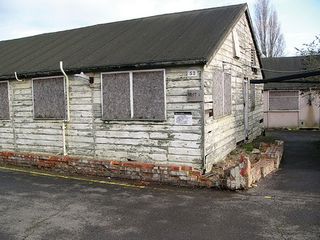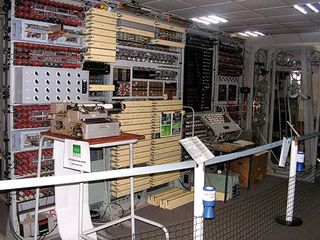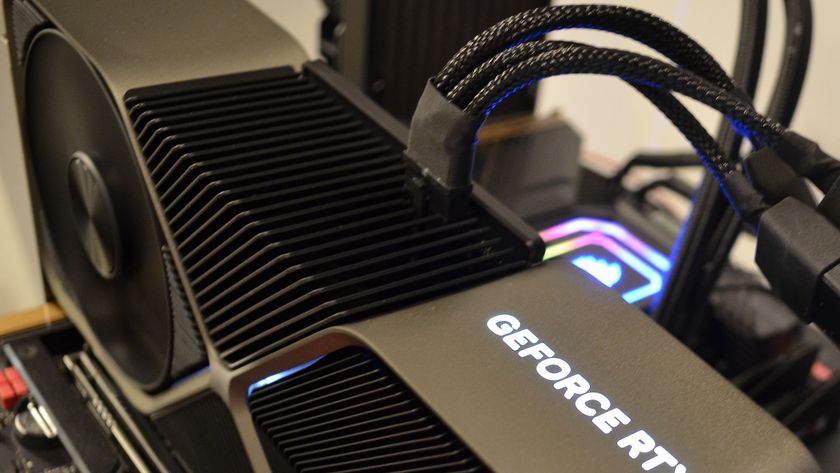During Britain's darkest days, Bletchley Park in Buckinghamshire shortened World War II by around two years and saved countless lives by secretly cracking Nazi codes.
Sadly, today Bletchley Park faces its own fight to stay open as a monument to the birthplace of digital computing. Social media now helps in this struggle, and its sheer immediacy came as something of a shock to Director of Museum Operations Kelsey Griffin.
"To be honest, it's been quite a sudden progression," says Griffin. "We were approached in January of this year. Dr Sue Black [from the University of Westminster] came along with three social media technologists. Until then I have to say that I considered Facebook and Twitter a fairly juvenile pastime for people with far too much time on their hands." The visit soon made her think again.
"We were walking around the site and they set me up a Twitter account there and then, and put the word out that Bletchley Park was on Twitter. Within an hour and a half, we had literally hundreds of followers. People were sending me really positive messages."
The astonishment was mutual, it seems. The three technologists had never been to Bletchley Park before. "They were completely bowled over by it," says Griffin.

NEEDING FUNDS: Bletchley Park needs to campaign constantly to find the money to preserver its iconic huts
The technologists used the iPhone AudioBoo application to record interviews with Griffin to put on the internet. "They just got the most incredible response," she says. "I realised there was a whole audience out there who we really weren't communicating with. Since then, I've got approaching 3,000 followers [on Twitter] I think. It's been absolutely astonishing."
Get daily insight, inspiration and deals in your inbox
Sign up for breaking news, reviews, opinion, top tech deals, and more.
Mecca for geeks
Without official government funding, Bletchley Park is run on a shoestring. Other than the odd grant – such as the £460,000 donated by the National Lottery last autumn – funding centres around getting visitors through the gates.
"Our visitor numbers this year have risen 20 per cent on last year, which is even more astonishing when you consider that last year they were up 40 per cent on the year before and we'd budgeted for a downturn this year," says Griffin. "I'm not necessarily attributing everything to social media, but I'm certain it's had a huge impact.
"Our financial position has always been a bit precarious. And although we balance our budgets now, we still have an extremely tiny marketing budget. Our visitor numbers have almost doubled in three years. Three years ago, we had almost 50,000 visitors a year. This year we're heading for almost 100,000 visitors.
"We're now engaging with a younger audience who consider Bletchley Park to be the birthplace of the modern computer because Colossus was built and used here and that was the world's first digital programmable computer," says Griffin.
"So they're almost embracing Bletchley Park as the spiritual home of the geek, if you like, which is brilliant. I think that social media and the way that we've been engaging with these people has an awful lot to do with it. People are realising that the information age, which underpins everything they do today, all started at Bletchley Park."

HOME AT LAST: Thanks to Twitter, a new generation sees Bletchley Park as the spiritual home of the geek
Like NO2ID, Griffin also uses more traditional methods of publicising the Bletchley Park campaign. "We have a subscription database on the website for people who are interested in receiving updates," she says. "So we [send out an] e-shot, which is also an incredibly cost-efficient way of communicating with our audience."
Twitter has also helped Bletchley Park to gain publicity in unexpected ways. "I don't know if you've seen," says Griffin, "but Stephen Fry came to visit. Within minutes of him tweeting about us, hundreds of messages of support appeared. So that's how instant it is."
Then there was the public competition run by builder's merchant Wickes earlier this year to find the building that Britain was most proud of.
"I have to say that I did tweet about that and we ended up winning over and above The Cavern in Liverpool, and a number of National Trust properties," admits Griffin. "You'd think that they'd have more pulling power than most, but we won."
-------------------------------------------------------------------------------------------------------
Liked this? Then check out The real reason Google wants out of China
Sign up for TechRadar's free Weird Week in Tech newsletter
Get the oddest tech stories of the week, plus the most popular news and reviews delivered straight to your inbox. Sign up at http://www.techradar.com/register













